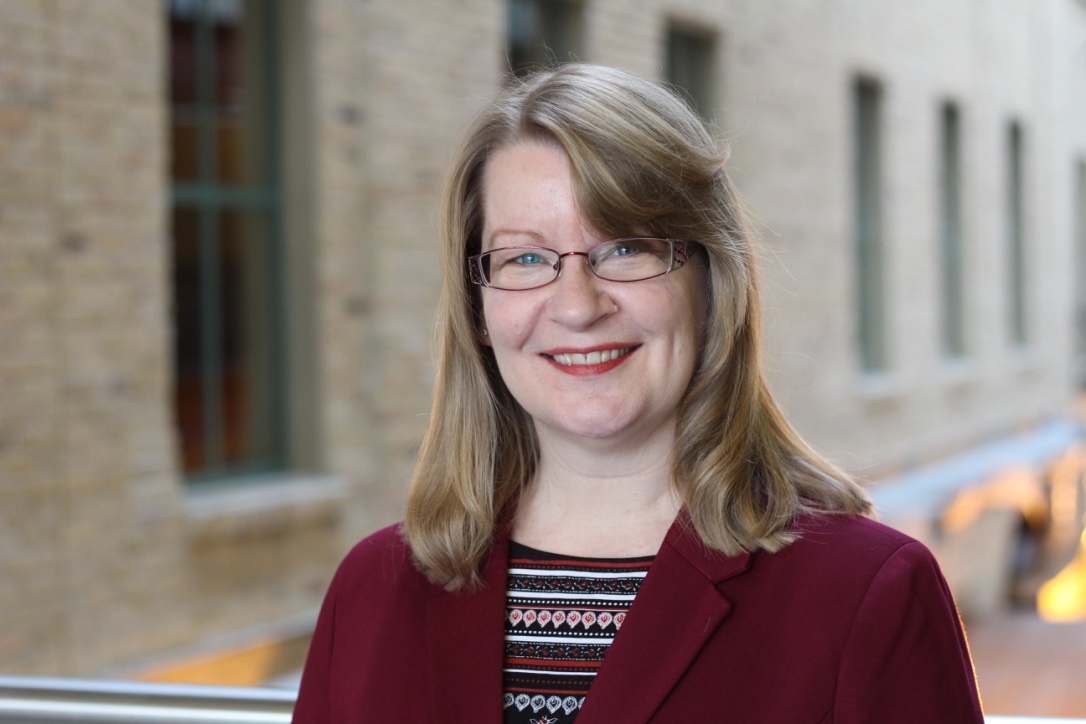
Q & A with Sandra Woloschuk, Human Resources // Photos by Josh Hartlin
Puzzle-solving, principles of play and other tips
Register now for the Dec. 1 Lunch and Learn session on applying play at work
Woloschuk: In play, failure is reframed as iteration. My career revolves around helping people to learn new things or new ways of doing things, so that expression hits to the heart of what we do here in Learning and Organizational Development.
What if fun and games were part of our everyday approach to work?
Sandra Woloschuk, associate director, learning and organizational development (LOD), human resources sat down to talk with us about the Lunch and Learn series called “Using Play for Better.”
Lunch and Learns sessions are open to all faculty and staff and are held from noon to 1:30 p.m. at 141 Education building (the LOD classroom space).
What will participants learn or do at this Lunch and Learn series on using play at work?
Woloschuk: Each Lunch & Learn session in the series has a different focus. The one on October 20 focussed on how teams can work together to make better decisions, using playing blocks to build three-dimensional images of our ideas. The one on December 1 will focus on using play to improve communications with others.
Each theme will incorporate an interactive exercise, like puzzles or games, which adds a layer of fun to how people express themselves! Plus, it creates a more comfortable atmosphere for people to share different points of view.

What are three tips for using play?
Woloschuk: There are a couple of principles from the Institute of Play (https://www.instituteofplay.org) that really resonate with me. My favourite is that in play “failure is reframed as iteration.” My career revolves around helping people to learn new things or new ways of doing things, so that expression hits to the heart of what we do here in LOD.
My other favourite principles are “everyone is a participant” and “learning happens by doing.” These principles really sparked the idea for us to create this “Using Play For Better” series for university faculty and staff.
Woloschuk: What do you personally do to be more playful, either at work or at home? How does this translate to your role at the U of M?
Great question and a tough one for an introvert to answer! In the last year, I have brought more puzzle-solving skills into my work life. Part of my job is providing leadership coaching and I try to help people to put together puzzle pieces of the future they want to create for themselves at the U of M.
As a coach, I get to use imagination, storytelling, sense of humour, and lots of creativity to help people design a new way forward. I have also been bringing more games into my learning workshops. When you divide a group into smaller teams and give learning challenges or problems to solve, I believe that builds energy and makes the lesson easier to remember.

Why is it important to remember play at work?
Woloschuk: Just ask yourself if you have ever experienced a miscommunication or felt that you weren’t contributing to a meeting or discussion as well as you might have.
By giving everyone in the group an engaging activity to more fully express their ideas, we can communicate more easily with one another. And just like in other games, everyone has a turn, everyone has equal opportunity to contribute, and the final overall product is better because of the full engagement of the group.
Using play leads to laughter. It adds a layer of comfortableness and collegiality to the process of trying to solve challenges. Laughter is a great way to break the ice and helps to use tension in a positive way.






